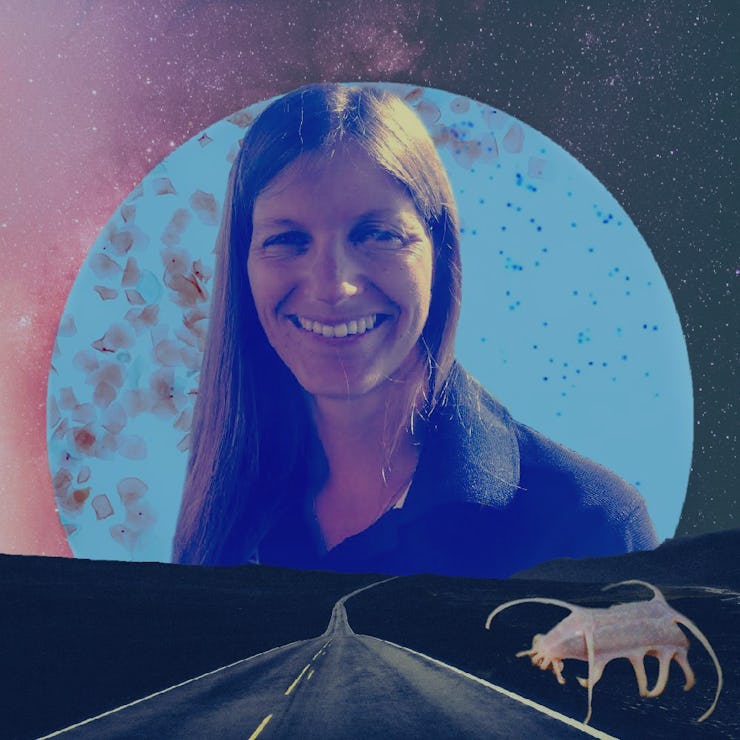The Ocean's Tipping Point Has Been Reached
Now is the time for action.

The ocean is the backbone of our planet, and just because much of it is unseen to us land-living humans, it does not mean that it’s not important every day.
"It has done an amazing job at being a sponge for human-created emissions."
The problem is the ocean is so vast, and it has done an amazing job at being a sponge for human-created emissions. But it needs to be reiterated that the ocean is in danger. The impacts of climate change and illegal, unregulated, and unreported fisheries are the main challenges that the ocean faces. Ghost fishing gear — items that have been lost, abandoned, or disposed of — continue to catch marine organisms.
See also: The Future of the Ocean is Best-Seen from Deep Below
More recently, plastic has emerged as a visible sign of ocean pollution. Plastic is not the biggest issue facing the ocean, but it is a useful way to get people to see that there are problems.
The consequences of these factors are not always obvious to the casual observer, but they are igniting long-term, chronic impacts. There’s also a tragedy of the commons because there’s not one group responsible for the ocean, beyond national boundaries. Luckily, the current negotiations at the United Nations over protecting the high seas will address this over the next few years.
Ocean protection takes careful designation, management, and enforcement. This takes time, with appropriate consultation with stakeholders. Different models have worked in different regions, but both top-down and bottom-up approaches are required in order for success. Protection sometimes takes a while, and this needs to be communicated appropriately so false expectations don’t take root.
What many people fail to understand is that all of our marine areas are connected. The ocean drives many of the planet’s processes. For example, only a tiny proportion of the human population will ever get to go to Antarctica, but its cold waters positively affect the entire planet. Antarctic bottom water acts as an underwater conveyor belt that brings nutrients to the tropics in upwelling water, sustaining vast marine populations, which in turn sustain a large number of human populations.
The Triton submersible used by Nekton.
As a marine biologist, I provide data to help understand why biological communities live where they do. This feeds into predicting patterns of biological diversity, and how this may change in the future. Sharing this information helps authorities make appropriate management decisions.
Those decisions need to be made as soon as possible. The tipping point has been reached, and now is the time for action. Because the ocean has been absorbing many pollutants for so long, we’re only now seeing the impacts. But just because these changes are slow doesn’t mean they are not happening.
"We need to give the ocean a helping hand."
We humans need to carefully consider resource use. As of now, we are over-consuming and paying little respect to the processes on this planet that are keeping us all alive. The planet is changing, and the ocean can help mitigate many of the impacts of climate change — like a coral reef reducing the shore damage after a storm — but we need to give the ocean a helping hand.
If you want to help, consider the consequences of your daily actions. This can start with a simple reduction in consumption. Eliminating single-use plastic is a good start, but we need to do more. Consider your energy use and the type of seafood that you eat. You can also advocate for healthy ocean solutions by supporting conservation measures in your local area, regardless of whether or not you live near the sea.
We only have one planet, and it is all connected. We need to take on our individual responsibilities and get those in power to do the same.
Dr. Lucy Woodall is a senior research fellow at the University of Oxford and the principal scientist at Nekton. As a marine biologist, she examines the processes that drive biodiversity in the ocean and the impact of human activities. She is passionate about ocean health, and her work on microplastics was the first to reveal the ubiquity of this pollutant in the ocean. Follow her on Twitter @water_nomad. Woodall is a member of the Inverse Future 50.